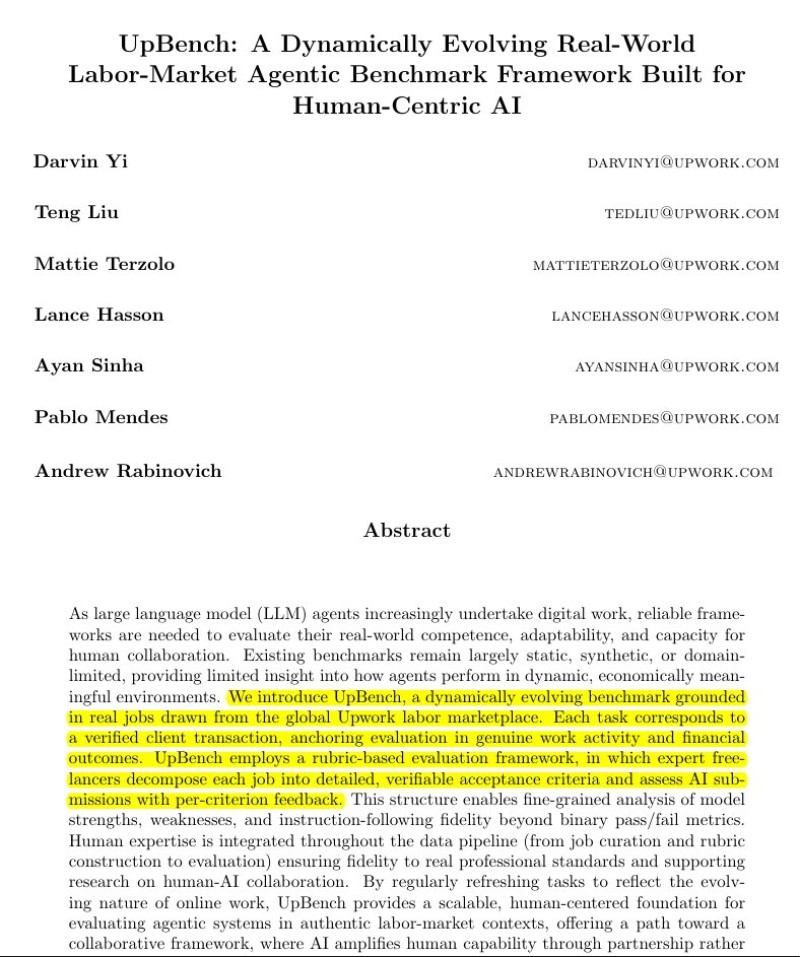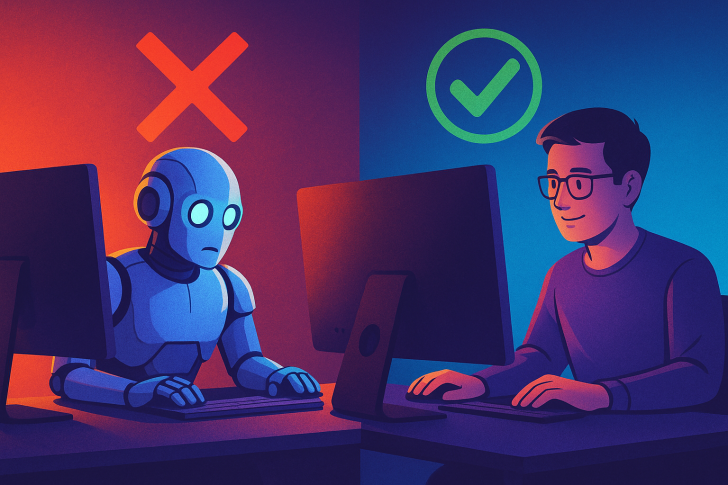⬤ A recent study from Upwork reveals that AI agents powered by leading language models regularly fail at straightforward professional tasks when working independently. However, when these same agents team up with expert human reviewers, completion rates jump by as much as 70%. The findings emphasize that human judgment remains critical in real-world work environments, even as AI capabilities advance.

⬤ These developments come as governments debate new taxes on compute-intensive AI systems. Higher operational costs could squeeze smaller AI companies, potentially triggering bankruptcies and pushing talent toward regions with friendlier tax policies. Such regulatory pressure might actually slow down the effective human-agent workflows that this research identifies as most productive.
⬤ Upwork tested over 300 real paid projects under $500 spanning writing, translation, sales, engineering, data science, and web development. Tasks were intentionally simplified to give AI models a fair shot, yet they still struggled alone. Human feedback transformed results dramatically: Claude Sonnet 4 jumped from 64% to 93%, Gemini 2.5 Pro climbed from 17% to 31%, and GPT-5 in engineering rose from 30% to 50%. The biggest improvements showed up in judgment-heavy fields like writing and translation, where experienced freelancers added context and guided style decisions. The UpBench framework behind the study evaluates models using real Upwork jobs tied to verified transactions, applying rubric-based criteria and detailed feedback from seasoned freelancers.
⬤ The economic impact is already visible. Upwork reported 53% year-over-year growth in AI-related spending during Q3 2025, showing rapid adoption of human-AI hybrid workflows. The company is now building Uma, a meta-orchestration agent that routes tasks between experts and models, reviews outputs, and manages improvement cycles. The bottom line: standard benchmarks don't reflect messy real-world work, and productivity gains in the near term will come from humans and AI working together, not from full automation.
 Peter Smith
Peter Smith

 Peter Smith
Peter Smith


